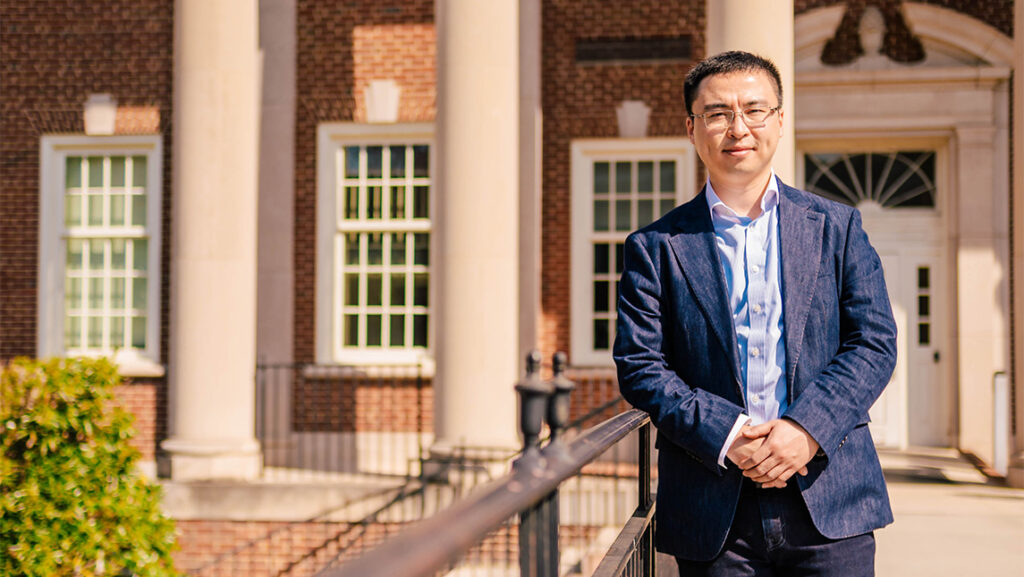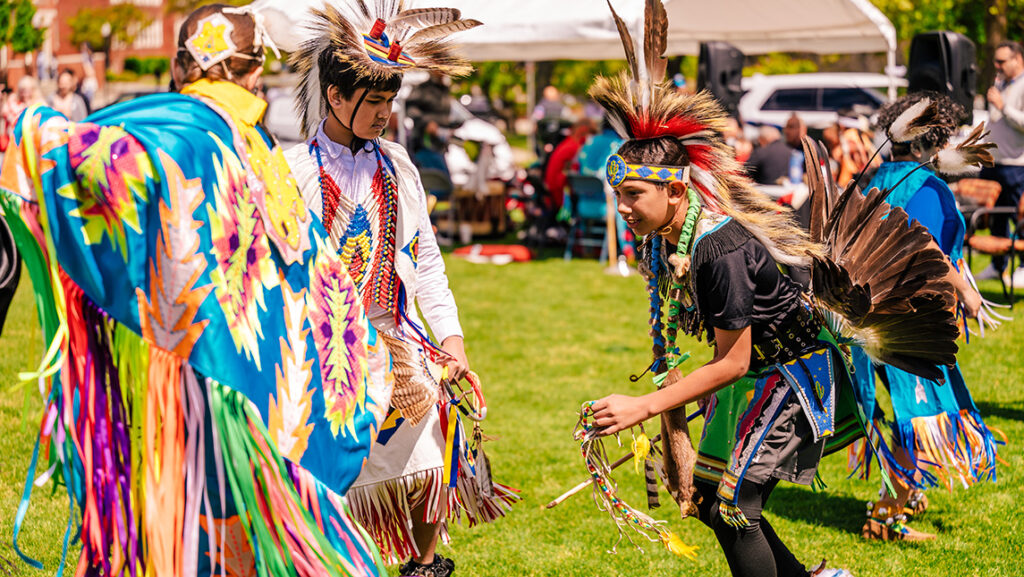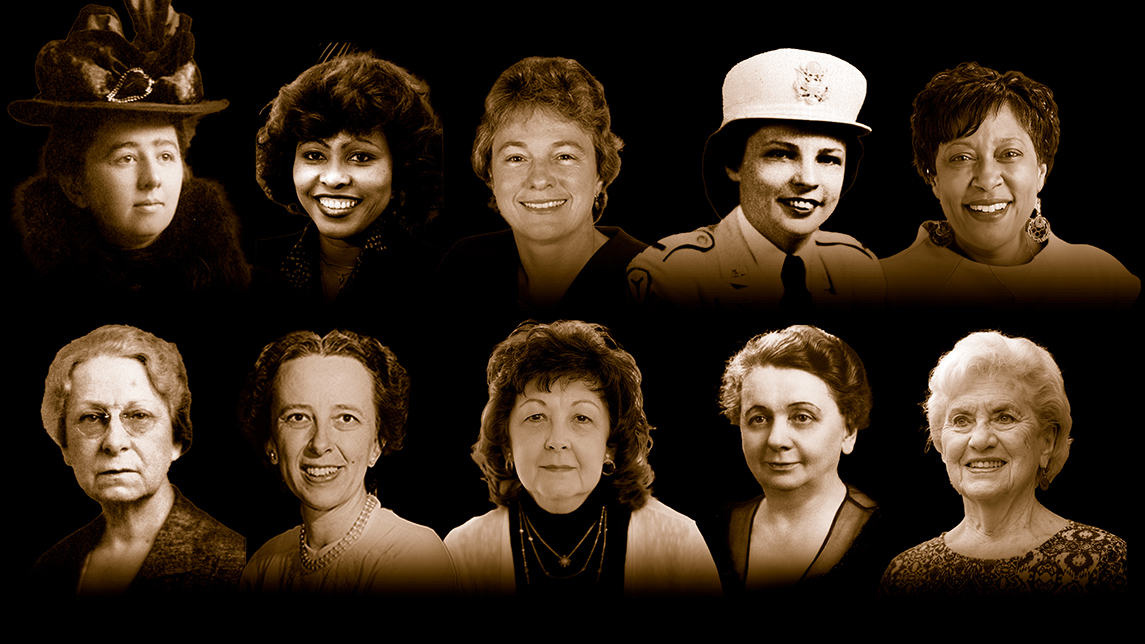
Since UNC Greensboro’s establishment over 130 years ago, women have played a key role in shaping the University’s history.
And over the course of this history, Spartan alumnae have gone on to shatter glass ceilings in numerous fields, break countless records, and make immeasurable impact across North Carolina and beyond.
As we celebrate Women’s History Month, explore the stories of just a few of UNCG’s most notable trailblazers.
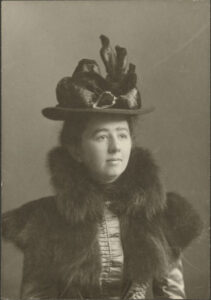
Mary Maria Petty
Mary Maria Petty was the pioneer woman chemist in North Carolina. She received a bachelor’s degree in chemistry in 1885, at a time when higher education for women was not at all widespread and science in their education was almost unheard of. In 1893, one year after the opening of the State Normal and Industrial College, she joined its faculty to teach physics, chemistry, and mathematics. In 1903, she became head of the Department of Chemistry. She was the first female member of the American Chemical Society in North Carolina, responsible for setting up the first chemistry laboratory for women in the state, and she ultimately planned and built several buildings for chemistry as the institution grew. In 1936, Petty was named the first woman trustee of Guilford College. In 1920, she had been one of three North Carolina delegates to the World Conference of Friends in London on world peace and was again a delegate to a similar conference in 1937. Petty was an organizer and former president of the Greensboro Women’s Club and the first secretary of the North Carolina Federation of Women’s Clubs. In 1960, the science building on campus was renamed in her honor. Read more.
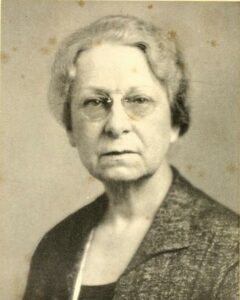
Dr. Anna Gove
Dr. Anna M. Gove was the campus physician, professor of hygiene, and director of the Department of Health from 1893 to 1937 at State Normal and Industrial College. Gove was the third woman doctor and first licensed woman physician in North Carolina and a pioneer in the field of health education. During the typhoid epidemic that swept the State Normal and Industrial College in 1899, Gove stayed on campus, which had been declared an emergency hospital. She was later praised for her efforts during the epidemic by parents, students, and the community. The original campus infirmary that was built in 1911 was named in Gove’s honor. Read more.
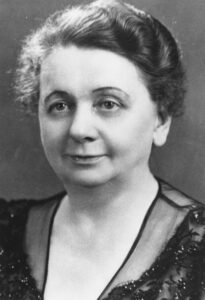
Harriet Elliott
Harriet Elliott joined the faculty of the North Carolina State Normal and Industrial College in 1913 as a teacher of political science, and in 1935, she became dean of women. In addition to her involvement in education in North Carolina, Elliott gained prominence during the war years as the consumer commissioner on the Advisory Commission to the Council of National Defense (1940-1941), chairman of the Woman’s Division of the War Finance Committee (1942-1946), deputy director of the Office of Price Administration, and United States delegate to the United Nations Conference on Education, Science, and Cultural Organization (UNESCO) in London in 1945. She was active in various political, civic, and professional organizations and held membership on several state committees and commissions. UNCG’s student union building, the Elliott University Center, is named for her, and the Harriet Elliott Lectures in the College of Arts and Sciences are held in her memory. Read more.
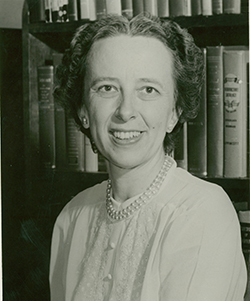
Mereb Mossman
Mereb Ethna Mossman came to Woman’s College in 1937 as a professor of sociology and later became dean of instruction, dean of the college, dean of faculty, and vice chancellor for academic affairs. She retired in 1976 with a resume containing eleven pages full of community work, educational efforts, and honors. To name a few: Mossman was a consultant for the American Association of Schools of Social Work and the Southeastern Office of the Red Cross. She was also a member of the American Sociological Society, Southern Sociological Society, and the North Carolina Conference of Social Services. Mossman was also a trustee and executive member of Moses Cone Memorial Hospital, Chairman of the Committee on General Education at Woman’s College, and served on the Board of the Young Women’s Association. She was an honorary member of the Junior League, recipient of the Quota Club’s Woman of the Year Award in 1954, and recipient of the Oliver Max Gardner Award in 1956. In 1977, the campus administration building on UNCG’s campus was renamed in her honor. Read more.
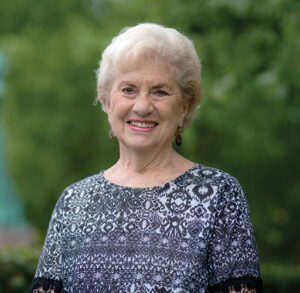
Dot Kearns
Dot Kearns ’53, ’74 MEd was the first woman to chair the Guilford County Board of Commissioners. She is recognized for leading the effort to ensure a safe drinking water supply to all Guilford County citizens. Earlier in her career, she served on the Boards of Education for both High Point City Schools and then Guilford County Schools. She advocated for the innovative Smart Start program for young children. She has served in community service positions with the National Conference of Community and Justice, the Guilford County Health Advisory Board, Communities in Schools, the NC School Boards Association, the Community Advisory Board for Kids Voting, and, at UNCG, the UNC Greensboro Foundation Board (twice) and the Board of Visitors. She received the Outstanding Service Award presented by the NC League of Women Voters, as well as the governor’s Order of the Longleaf Pine Award. The National Conference for Community and Justice of the Piedmont Triad (NCCJ) presented her its Brotherhood/Sisterhood Citation Award, which recognizes individuals who have made significant contributions toward creating a community free of bias, bigotry and racism. Currently, she is vice-chair of Public Schools First North Carolina, and she is very involved in the Guilford County Roundtable for the NC League of Women Voters. Read more.
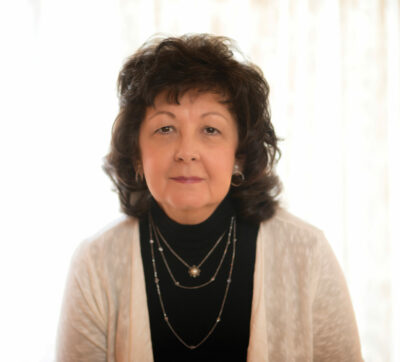
Nancy Adams
Nancy Adams for bringing genetic counseling to North Carolina almost 35 years ago. After receiving her undergraduate degree in nutrition from UNCG in 1960, she became interested in the emerging health field of genetic counseling. However, at that time, only two graduate programs in the U.S. offered graduate programs in genetic counseling, and neither were in the eastern U.S. Undaunted, Nancy returned to UNCG and created her own graduate program. After receiving her M.S. degree in Biology with a focus on human genetics in 1977, she was employed in the Division of Genetics and Metabolism at UNC-Chapel Hill as the first genetic counselor in North Carolina. Her academic achievements and clinical experiences qualified her to be among the first genetic counselors to be certified by the American Board of Medical Genetics in 1982. In the fall of 2000, North Carolina established a graduate program in genetic counseling of its own at UNCG, with Adams as an integral member of the planning committee. Since then, she has provided opportunities for UNCG’s genetic counseling students to observe, learn, and practice genetic counseling in a supervised clinical rotation. Read more.
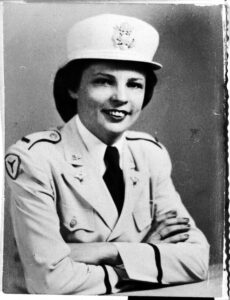
Dr. Eloise Lewis
In 1966, Dr. Eloise Rallings Lewis became the first dean of the newly-created School of Nursing at UNCG. Under Lewis’s leadership, the School of Nursing grew quickly. In 1970, the School of Nursing was accredited by the National League of Nursing. The following month, the first class of 18 students completed the requirements for the B.S. degree in nursing, and later, all graduates passed the State Board Examinations and were licensed to practice as registered nurses. During her time as dean, Lewis also continued to be very active within the UNCG community and in various professional organizations. In 1976, she won the prestigious Oliver Max Gardner award for excellence in teaching. She served as president of the American Association of Colleges of Nursing from 1978 to 1980 and was the first editor of the Journal of Professional Nursing. Lewis was also very active with hospice care in Greensboro and received numerous awards for her contributions to the nursing field, including four honorary degrees. Lewis retired from her role as the founding dean of the School of Nursing in 1985 after holding the position for 19 years. In 2008, she was inducted into the North Carolina Nursing Association’s Hall of Fame. Read more.
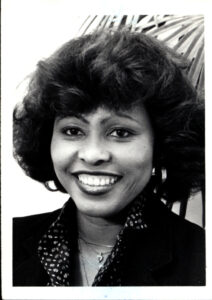
Dr. Ernestine Small
Dr. Ernestine Small broke UNCG’s color barrier in 1967 as one of six initial faculty members hired for the then-new School of Nursing. Small spent 24 years at UNCG, teaching medical-surgical nursing courses. Throughout her career, Small found herself in a position to affect change. She participated in the Civil Rights Movement in the early 1960s while attending Tuskegee University. She saw angry White spectators throw objects and heard them use racist terms as she marched through downtown Tuskegee with other students and campus staff. Not only was she active in the civil rights movement, but she also was the first African American to serve as president of the North Carolina Nurses Association from 1979-81. She remains a key figure in the University’s history 55 years later. Read more.
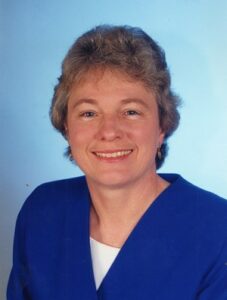
Rita Wiggs
If you attended a UNCG women’s basketball game in the early-mid 1970s, you likely would have seen Rita Wiggs ‘75, jersey number 33, helping push the team to victory with record-setting scores. Since graduating – and having her number retired at UNCG – she has continued her passion for basketball, coaching at several institutions before becoming the first full-time commissioner of the USA South Athletic Conference, where she would serve for 16 years. In 2015, the prestigious USA South Woman of the Year award was renamed the Rita Wiggs Woman of the Year Award in her honor. In her four years at UNCG, Wiggs led the Spartans to success at a time when there was much less recognition of women’s collegiate athletics in America. Highlights of her time playing for the Spartans include the team’s advancing to the AIAW Regional Tournament in 1972, participation in the 1973 University Games training camp, and membership on the USA Regional All-Star team that in 1974 played against the USSR national squad. Earning all-state honors as a junior and senior, she held UNCG’s career scoring record for a decade after graduation, and she is one of only three women’s basketball players in school history to lead her team in scoring in all four seasons. Her career average of 18.5 ppg is still the all-time top of any UNCG player, regardless of gender. Read more.

Oita Coleman
Oita Coleman earned a bachelor’s of science degree in mathematics and computer science from UNCG in 1982, when there were few women and few African American people in those disciplines. Coleman worked at SAS for 33 years in the software quality division, eventually becoming vice president of software quality. In 2019 she was named Top 50 Most Powerful Women in Technology by the National Diversity Council. She now has her own consultancy Servant Voice Technologies and is also senior advisor for Open Voice Network, helping to form the global technical standards and ethical use guidelines for the future of artificial intelligence-voice enabled assistance. Read more.
Are you a Spartan alumna making an impact through your career or in your community? Let us know.
Photography by Martin W. Kane, University Communications or courtesy of University Libraries

